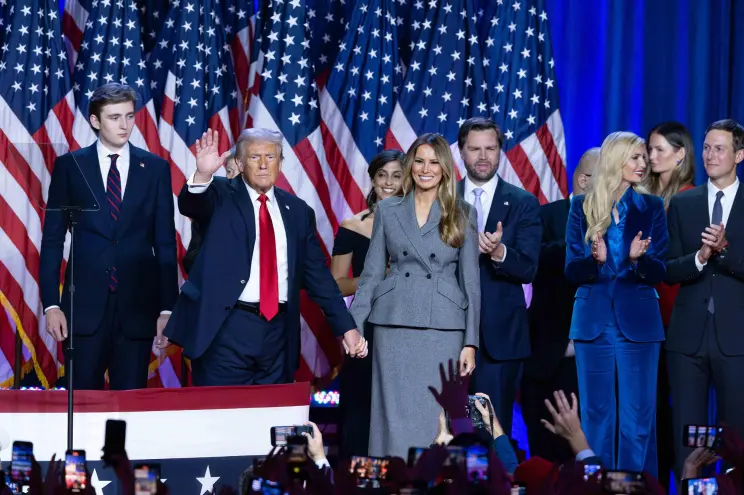By Nitya Chakraborty
The recent announcement regarding Gaza, made just five days before Donald Trump’s inauguration as President of the USA on January 20, has left many peace advocates and liberal political analysts perplexed about how to evaluate the policies of this far-right Republican. While Democratic President Joe Biden has struggled for fifteen months to make progress since the onset of the Hamas-Israel conflict on October 7, 2023, Trump managed to achieve what Biden could not within just a few weeks following his election in November.
In the ongoing Israel-Palestine conflict, over 1,200 Israelis have lost their lives, while the Palestinian death toll stands at around 46,000, with a significant number of victims being women and children. Despite continued support for Israel from President Biden and efforts by his administration to find a resolution in recent weeks, no tangible results emerged. Israeli Prime Minister Benjamin Netanyahu remained committed to the military campaign, backed by the Israeli defense forces, who expressed intentions to remove every Palestinian from Gaza.
However, the situation shifted following the November elections as Trump took steps to initiate peace talks in the Middle East. In the final days leading up to Trump’s assumption of office, his advisors launched a concerted effort to pressure Netanyahu into agreeing to a truce. Last Friday, Trump’s special envoy to the Middle East, Steven Witkoff, contacted Netanyahu from Doha, insisting on an immediate meeting, despite Shabbat customs which typically lead to a slower pace during that time. Netanyahu’s office suggested a delay, but Witkoff insisted on Saturday morning, requiring Netanyahu to be prepared.
According to Israeli media sources post-meeting, Witkoff presented Netanyahu with an ultimatum, warning that if Israel sought Trump’s support in the future, it would need to agree to the proposed truce framework swiftly, prior to Trump’s inauguration. Though Netanyahu hesitated, he ultimately recognized that there was no alternative but to acquiesce.
An editorial in the Israeli newspaper Yedioth Ahronoth highlighted Netanyahu’s realization of the dynamics with the incoming president, stating that Trump has a distinct negotiation style that Israel could not easily navigate. “They recognized that Trump operates at his own pace and will not be outmaneuvered,” the commentary remarked.
Trump publicly took credit for the emerging deal via social media shortly thereafter. Meanwhile, Biden’s administration, with Secretary of State Antony Blinken, was also engaged in discussions with Egypt, Turkey, and Qatar regarding the truce. However, Netanyahu remained noncommittal about certain terms within the proposed deal. The essential aspects were ultimately solidified during Witkoff’s meeting with Netanyahu, indicating a one-sided negotiation where Netanyahu could not voice objections.
Trump’s decisive, if somewhat authoritarian, approach yielded results, showcasing the implications of what many are referring to as the “Trump doctrine.” While it may pave the way for peace or escalate further conflict, it certainly represents a moment where Trump succeeded in accomplishing what Biden could not. Biden has implemented social welfare measures domestically, such as enabling union formation in previously restricted sectors, yet he has struggled to make headway in foreign policy. His administration has backed both Israel and Ukraine while supplying them with military aid.
The Gaza agreement is reportedly a three-phase arrangement based on a framework initially proposed by Biden and supported by the UN Security Council. It includes the gradual release of 33 hostages over six weeks—men and women, old and young, alongside wounded civilians—in exchange for hundreds of Palestinian detainees currently held by Israel.
This process would see five female Israeli soldiers released for every 50 Palestinian prisoners, including numerous militants serving life sentences. The agreement aims to end the ongoing fighting with a six-week ceasefire, thereby opening doors to further negotiations for a more lasting peace.
In addition, there is another significant conflict involving Ukraine and Russia. Biden has not taken substantive steps to cease hostilities, instead opting to send continued military support to Ukraine while recently imposing additional sanctions on Russia. In contrast, Trump has already indicated his intention to prioritize a resolution in Ukraine and suggested a meeting with President Putin, which has received a warm response from Russian officials. There is hope that a summit could occur shortly after Trump’s inauguration.
If a deal is struck with Putin, regardless of the terms, it would represent a major victory for the far-right Republicans. Over the past three years, the anti-war movement, along with European leftists, has advocated for an end to what they deem as genocide in Palestine and the conflict in Ukraine. Should Trump manage to achieve ceasefires in both arenas, it would undeniably mark a noteworthy accomplishment—irrespective of the methods employed. His foreign policy tactics are diverging from conventional approaches typically favored by world leaders. The new U.S. president could become known for enacting policies that favor the wealthy domestically, while simultaneously pursuing conflict resolution abroad. These are indeed intriguing times for both the U.S. and the global community. (IPA Service)


Leave a Reply